2020 Boating Industry Movers & Shakers
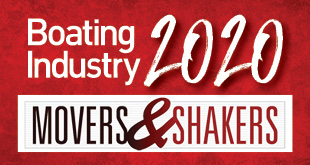
By David Gee
The 10th Annual Boating Industry Movers & Shakers Awards recognize innovative leaders and trailblazers in the recreational boating industry who embrace the challenge of change.
These leaders have been especially critical in 2020, when it seems like the only constants are challenge and change.
This year’s Mover & Shaker of the Year led the transition of a 175-year-old portfolio business through year one of a marine-only business, oversaw an enterprise-wide coronavirus response, published the company’s first-ever sustainability report, acquired – and grew – Freedom Boat Club, was honored by Forbes for a commitment to diversity and hiring and promoting women, deployed a new technology initiative and will launch more than 50 major products in 2020.
However, he doesn’t just run the largest marine company in the country, with four-and-a-half billion dollars in revenue, and thousands of employees, he is a roll up the sleeves, sweat the details visionary who can talk pistons as adeptly as projected liquidity analysis.
We present you our 2020 Mover & Shaker of the Year, David M. Foulkes, Chief Executive Officer of Brunswick, as well as three others we are recognizing for their outstanding – and ongoing – contributions to the recreational boating business.
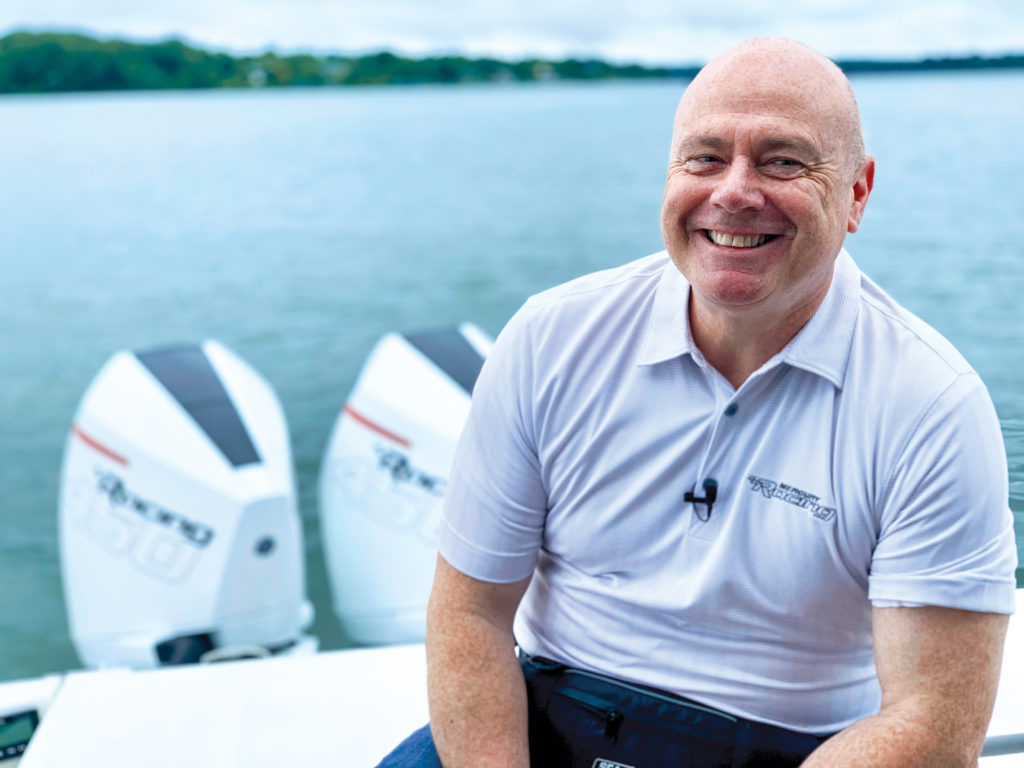
Mover & Shaker of the Year — David Foulkes
CEO, Brunswick Corporation
Mettawa, Ill.
Since its founding in 1845 as J. M. Brunswick Manufacturing, the company has made carriages, billiard tables, the first vulcanized rubber bowling ball (previously bowling balls were made of wood…who knew?), toilet seats, automobile tires, records and record players, target-drone aircraft, school furniture, fitness equipment, and eventually, boats and motors.
Engineer-turned-product developer-turned-CTO-turned-CEO Dave Foulkes changed that when he first assumed the chief executive role in January of 2019. And he has been putting his stamp on the company in ways you can imagine, and ways you can’t, ever since.
Let’s start with the drivers behind the divestiture of Life Fitness, the company’s last non-marine holdout. That’s where I began my wide-ranging conversation with the serious, but affable, chief executive, who first joined Brunswick in 2007.
Structural changes
“I think you’d have to say that generally the market is not favoring portfolio businesses in the way that it used to,” Foulkes stated. “Increasingly the market values a clean, clear narrative and a focus in a particular sector. Add to that a strategic plan and performance that is easy to understand. Our purpose and our vision are both really clear and we can talk about that in a way that our employees understand, and external stakeholders and investors clearly understand.”
Foulkes adds that the transformation of Brunswick wasn’t just about shedding a non-marine operating division. It was also about changing the way Brunswick operated as a dedicated marine company.
“A lot of our revenue had been in boats, a lot of our profitability had been in boats, but we have been steadily building our propulsion business and our parts and accessories business and other things that are much less cyclical,” explained Foulkes. “Interestingly, the pandemic provided a clear example and indication of that as even in the second quarter with all the disruption and the dynamics we were still profitable. We are a very different business from a structural perspective than what we used to be.”
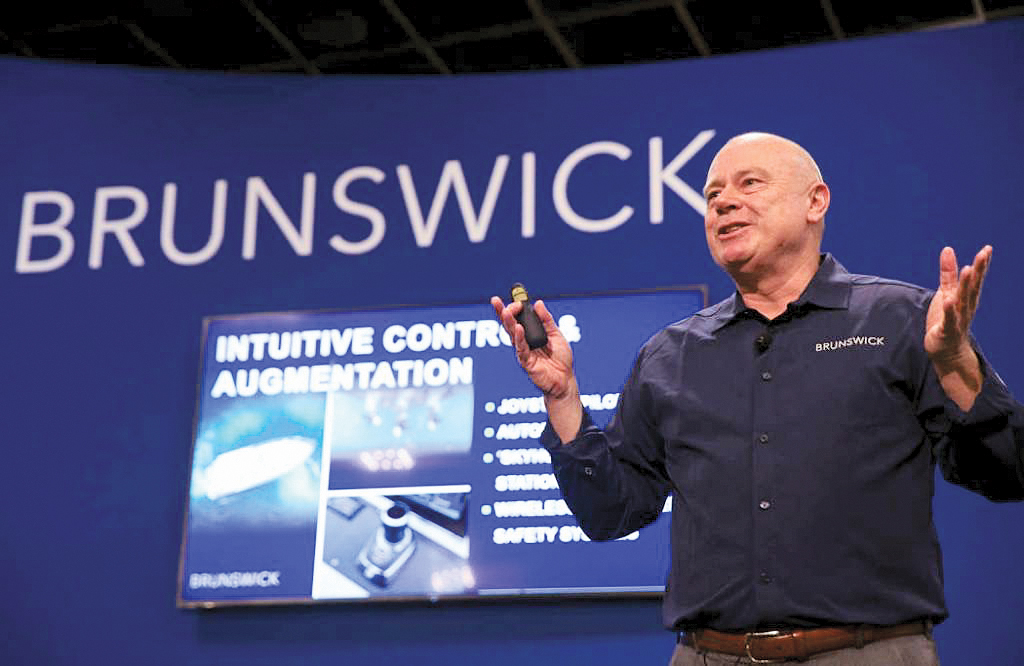
ACES it is
One of those differences is the way the company will focus on technology in the future. Just prior to the pandemic, Brunswick launched its innovative ACES strategy, standing for Autonomy, Connectivity, Electrification and Shared Access.
- Autonomy: Through internal developments and partnerships with MIT, Sea Machines, TechNexus and others, Brunswick is advancing augmented boat operation.
- Connectivity: A suite of connected technologies, including NAUTIC-ON and Vessel View Mobile systems.
- Electrification: The e-Fathom Mastervolt system includes a high-capacity lithium-ion battery pack with an intuitive power management system capable of powering all of the boat’s accessory systems as an alternative to a generator.
- Shared Access: Provides an alternative to ownership. Freedom Boat Club, which Brunswick acquired in 2019, is the largest boat club in the world, allowing those who do not own a boat to enjoy the boating experience.
“As it turned out, that acquisition has proved tremendously successful for us,” said Foulkes in a bit of an understatement. “When we bought Freedom it had 170 locations, and as of right now we have 243 locations globally. That model has exploded and clearly shows there is a tremendous demand for access to boating that is not necessarily completely fulfilled by traditional purchase opportunities. The most accurate predictor of boat ownership is boat usership. We see it as very profitable and a way to access boaters.”
Another way to access boaters in non-traditional ways is through sustainability. At Foulkes direction, the company published its first-ever sustainability report this year.
“The main thing we’re trying to do is the right thing,” Foulkes said earnestly. “There are many lenses to this. How do we attract employees who increasingly care about sustainability and want to be associated with a company who cares about it as well? How do we attract investors to our company who care about environmental and social governance? As long as your North Star is simply doing the right thing, you can gather resources and talent around you to make a difference.”
Here are some of the ways the company is trying to make a difference, focusing on the pillars of energy, environment, products and people:
- A 3% reduction in natural gas and electricity use as well as a 15% decline in water consumption in 2019.
- Mercury’s receipt of the Wisconsin Green Masters Award for nine consecutive years.
- Reduction of VOC emissions by 19% and hazardous waste by 16% in 2019.
- Recycled nearly 18,000 tons of aluminum.
- Reduction of recordable workplace incidents by nearly 11%.
The adoption of the United Nation’s Sustainable Development Goals to guide priorities, actions and improvement targets.
“Behind this though we have some internal advocates who are championing these causes and that’s what you need to be successful,” said Foulkes. “I think our employees feel we are genuine about this, and are really trying to make a difference, and appreciate the way we are approaching sustainability. We don’t just want to be a marine propulsion or boat business, we want to be a socially responsible business that makes communities here – and around the world – better.”
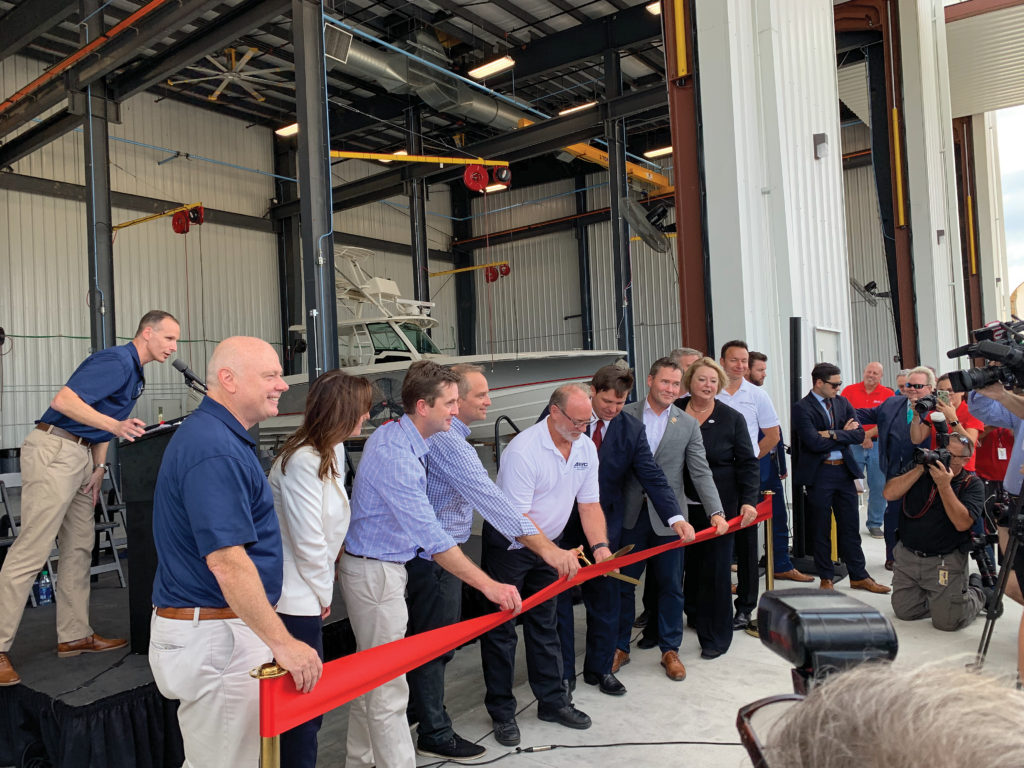
Foulkes also wanted to make a difference with the company’s coronavirus response. They didn’t just donate money, but time and effort to make face masks and shields to help first responders. Employees worked from home or with their own families to create PPE to donate. Brunswick and Mercury Marine also created a detailed “return to work” and best practices plan outlining steps for a safe return to manufacturing.
We also discussed a new Diversity, Equity and Inclusion committee Foulkes spearheaded, how many women Brunswick has in senior management, how young the management team is, some of the ways the Business Acceleration unit can incubate and innovate ideas for the entire industry and how a background in technology prepares a person for the C-suite.
We ended with the question of what else Foulkes wants to accomplish, beyond simply growing the business – and the bottom line. And it was clear two priorities bubbled to the surface.
“Once you become CEO your priorities necessarily adjust,” Foulkes said matter-of-factly. “And one of the most important things for me is putting in a leadership team that will carry the business into the future. I think I have a good vision for the business, and I will articulate that as time goes on, but the business is not me. We need to make sure the growth and success we have been enjoying continues.”
And so will Brunswick’s efforts to attract more – and younger – boaters.
“We absolutely need younger boaters and we need more women entering boating,” Foulkes said in closing. “We’ve been working hard to engage those groups with enhanced technology and other ways. It’s a really exciting time for the boating industry in my view, even as we face some headwinds with the pandemic and the broader economy. I am really pleased and proud to be part of an industry that has proven to be a safe recreational outlet during these troubled times and the fact that it has led to more people discovering boating.”
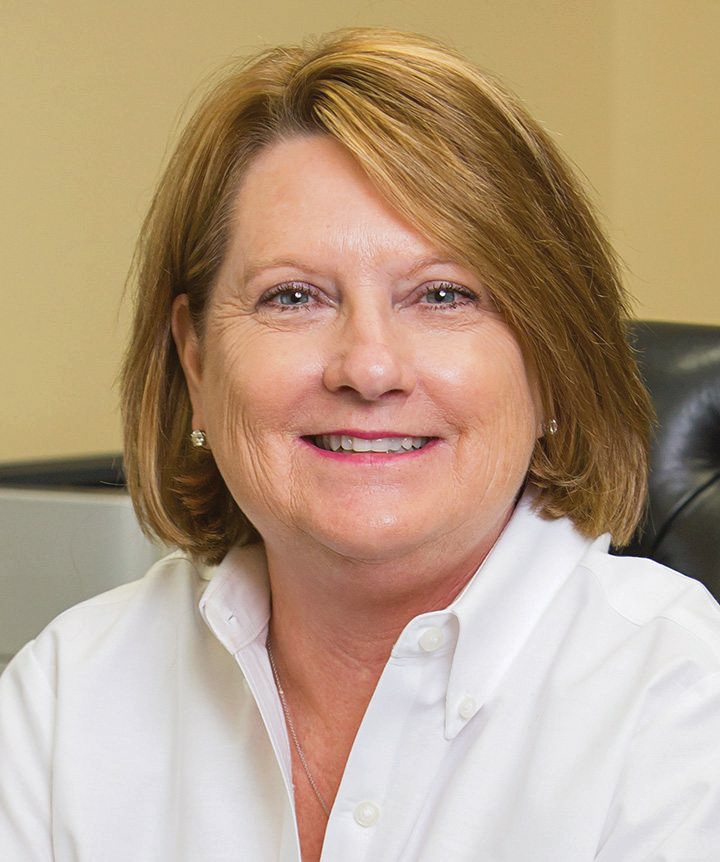
Finalist — Joan Maxwell
President, Co-Founder, Regulator Marine
Edenton, N.C.
When Joan Maxwell first heard about the coronavirus, she conferred with her husband and boat-building partner, Owen, and immediately crafted a plan to conserve cash.
“We do cash flowing projections every week, and we calculated our cash flow further out than we normally do, extending six to eight weeks and even beyond,” explained Maxwell, who started the company with Owen in 1988 in an abandoned grocery store. “Our primary commitment was to remain healthy, both from a company financial standpoint and from the perspective of our employees. Health was our top priority.”
Because they wanted to preserve people’s jobs in the long run, that meant cutting production in the short term.
“We had to lay off some employees, which is always the hardest thing to do, because they didn’t do anything to warrant the layoff,” said Joan.
Pandemic precautions
The Maxwells pulled people off the road and stopped company travel, and they also stopped outside vendors from coming into the facility, or “our house” as they call it. And every inch of the place got a thorough cleaning.
They also decided to divide manufacturing from the front office. For example, they put one customer service representative in the plant and then kept another one in the office. The idea was that if you needed a question answered from the floor, or from the front office, there was a way to do that without people physically going back and forth all day between the office and the plant.
“If we had an outbreak in either place, the plant or the front office, we wouldn’t have to shut down the entire facility,” Maxwell said. “The thing people have to remember is when the pandemic first hit, we weren’t sure where it was going or how long it would last. Were we headed for a worldwide recession? Was it going to be like the crash of ‘08-‘09? Something different? So we just tried to make the most informed decisions we could as early as we could.”
One of the first things she noticed about the divided plant was that you couldn’t take things like communication for granted.
“If there is a lack of information, people will write their own narrative,” said Joan, who conferred about the coronavirus response with colleagues in the industry such as Kris Carroll of Grady-White. “I tried to communicate with our employees as completely as I could as often as I could. And I really tried to focus on the facts, on the things we absolutely knew to be true. It was interesting to hear people’s reactions to that. Some employees said thanks. And others said, ‘Why’d you tell us that?’ We were just trying to give them the same information we had.”
Regulator roars back
As things picked up, and the industry benefited from a heightened interest in boating and a subsequent sales boon, Joan worked with her sales and engineering teams to ensure minimal production gaps and delays. They also brought team members back and adjusted schedules to produce boats.
Regulator is currently sold out of some models through the 2021 model year (ending June 2021), with other models on track to be fully sold by spring and inventory levels in the field at an all-time low.
“We were scheduled to really ramp things up in October, but we are experiencing supply chain issues and shortages, especially with some specialty items, so that is setting us back a bit,” Joan stated. “We were really surprised at how quickly and how aggressively things turned around. It was really unbelievable how fast we went from ‘no we don’t want it!’ to ‘when can we get it?’”
One thing Joan Maxwell really gets, and demonstrates daily, is a high level of integrity, not only at Regulator Marine itself, but also in terms of their commitment to the local Edenton, N.C., community where Regulator is located.
They have established community volunteer programs for employees, formal mechanisms for regular charitable giving, and created an employee emergency assistance fund.
We asked Joan if she recognizes values in the company today that were present when she and Owen began the business over 30 years ago.
“Absolutely,” she answered without hesitation. “Persistence. Not giving up. There is ultimately an answer to every problem. It may not be exactly the answer you want it to be, but there will be an answer that will be good for the company if you keep looking for it. The other thing is we always wanted the company to be bigger than just Owen and me. It wasn’t just for us. We are proud to be known for our commitment to quality boat building, but the heart of Regulator is our dedication to team members, customers, community, and God. It was always our desire to do something where we could work together to achieve a goal, and we did.”
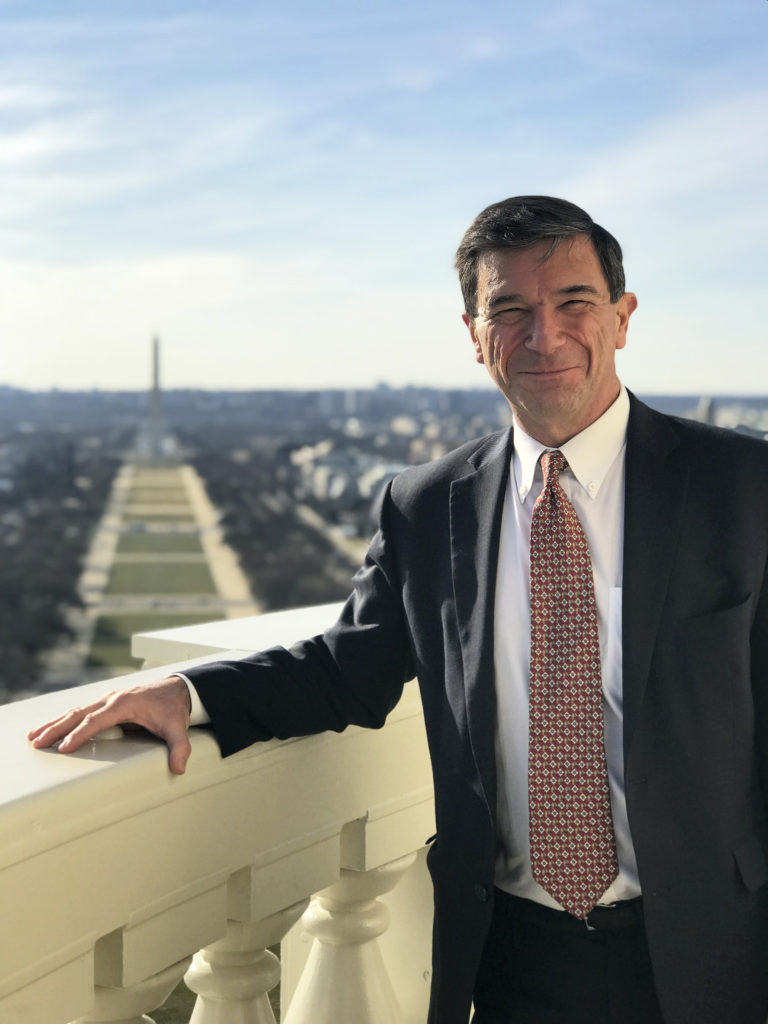
Finalist — Martin Peters
Senior Manager, Government Relations, Yamaha Marine
Kennesaw, Ga.
It’s not so surprising Martin Peters chose the career path he did, given how early lessons in conservation and sustainability came in his life.
“I grew up in Maryland and my dad first took me fishing when I was about six years old on the Patuxent River,” recounted Peters. “We fished all day for bluefish and my dad finally caught one. Then he released it. I asked him why? And he said, ‘I don’t want to be the guy to catch the last bluefish on this river today.’ And that taught me an important lesson. We are responsible for our resources. We are responsible for making sure fish are there for our kids, and their kids.”
Peters joined Yamaha Marine Group in 2006, and it was a natural fit. Yamaha has a long history of natural resource conservation, and a long line of conservation organizations they support. In his role, Peters champions advocacy efforts on behalf of the marine industry in Washington D.C. He makes many trips to Capitol Hill and collaborates with industry partners, resulting in legislation that recognizes the economic impact of recreational fishing and boating.
Legislation and organization
“Our biggest access effort at Yamaha is being part of the coalition that passed the Modern Fish Act (MFA),” says Peters. “The part of that bill that has the greatest impact on access is the provision for Alternative Management. While MFA was passed, we continue to work to see that the individual fishery management councils and the National Marine Fisheries Service define and implement Alternative Management programs that may allow anglers greater access. These efforts are ongoing, and Yamaha participates in activities in support of this along with the National Marine Manufacturers Association, the Center for Sportfishing Policy and many other groups.”
Peters also spearheaded Yamaha Rightwaters; a national sustainability program that encompasses all of Yamaha Marine’s conservation and water quality efforts. Program initiatives include habitat restoration, support for scientific research, mitigation of invasive species, the reduction of marine debris and environmental stewardship education.
“Through Yamaha Rightwaters, we will continue to fight to improve habitat, control invasive species and support scientific research,” said Peters. “In addition, we will focus on removing marine debris, specifically plastic. Rightwaters is an umbrella for what we have long done and for all the projects we are inspired to do.”
Currently, Yamaha Rightwaters is developing a pilot “trash interceptor” device engineered with Yamaha electric power and control systems designed to pick floating plastic debris out of storm water. It will be integrated into the infrastructure at a stream in Glynn County, Ga., as a pilot, and Peters said, “we will see where it goes after that.”
The future
Boating Industry asked Peters how he feels about the future of our nation’s natural resources.
“I am cautiously optimistic,” he said. “There is much to celebrate. At the same time, there are some concerns. As you know, we are very worried about invasive species. They are a great threat. Apart from that, we hear a great deal about climate change in the media, but very little about how CO2 affects the acidification of our oceans. There are many intersections of conservation and increasing our ability to sequester carbon dioxide. Yamaha Rightwaters is exploring what we can do in this area, but it is too soon to share a plan.”
An avid outdoorsman himself, Peters believes in conservation through sound scientific management of the resources held in the public trust. He also has a deep understanding of the symbiotic relationships between marine industry businesses, recreational anglers and boaters, and sustainability efforts that benefit the whole.
He said Yamaha has been very much a part of the Center for Sportfishing Policy (CSP) and their efforts to track the Modern Fish Act, which includes creating and publishing a “report card.” CSP has shared the report card with the appropriate officials and legislators so that there is complete transparency.
“The very fact that CSP has tracked progress and produced the report speaks to the vitality of the coalition this industry has created,” Peter says. “Conservation groups, marine businesses such as Yamaha, and policy organizations have all come together to work as one. As a result, and perhaps for the first time, Capitol Hill policy makers know we are a force and appreciate that outdoor recreation accounts for 2.2% of GDP. It has been an honor to be a part of this growth in recent years.”
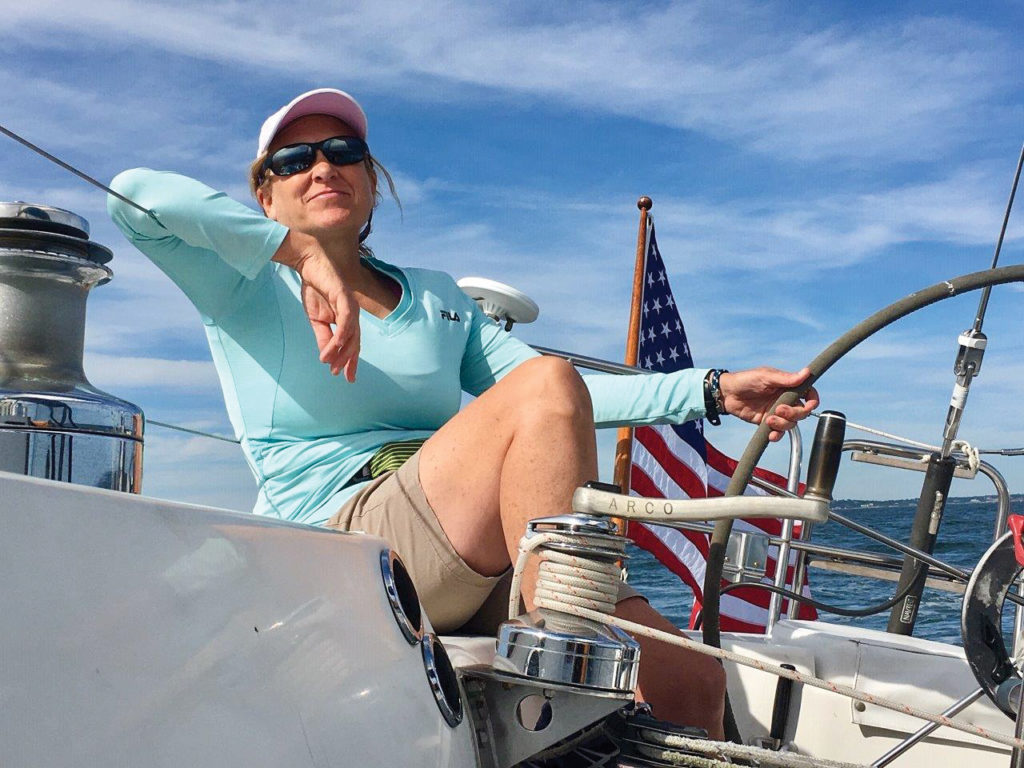
Finalist — Margaret Podlich
Executive Director, ABYC Foundation
Annapolis, Md.
In our industry, lots of people like to say they “grew up on the water.” Given that Margaret Podlich’s first time on a boat came at the three-week mark in her young life, that saying is probably actually true in her case.
The recipient of the 2014 Darlene Briggs Marine Industry Woman of the Year award, the 2016 Sailing Industry Distinguished Service award, and many others, sailed with her family growing up in Annapolis, and began racing sailboats at the age of 14. Obviously, she still spends time sailing today, when she’s not leading the ABYC Foundation to support workforce development in the marine industry.
A lifelong commitment
Podlich began her marine advocacy career doing grassroots volunteer coordination at the Chesapeake Bay Foundation. After several interim stops, she was eventually recruited to launch a clean boating program for an organization that was later absorbed by the BoatU.S. Foundation. That began an 11-year career with BoatU.S. that ended with a nearly five-year stint as president.
After working as a consultant in the industry, she agreed to come on board with ABYC as the Foundation’s Executive Director. She dove right in, developing a network of educators, finding ways to support marine technology programs, and developing resources for the next generation of marine technicians.
“Workforce development is the backbone of everything the ABYC Foundation is doing, although I think that generic term sometimes blurs the issue,” stated Podlich. “Simply put, we need to increase the quantity and quality of marine service technicians across the U.S. That breaks down into entry level training via schools and professional level training (like ABYC certifications).
“The ABYC Foundation had never been staffed, but John Adey (ABYC President) already had several threads spinning, for example the huge donation that BRP/Evinrude had made to help schools. So initially, I had to figure out what we had, where we wanted to and could go, and then start figuring out the puzzle pieces and putting them together.”
Organizing the educators
One of the pieces Podlich put together was the first-ever Educator Training Conference. Participants at the conference came from 15 states across the U.S., Canada and the British Virgin Islands to learn the latest on teaching marine service technology at the high school and post-secondary level.
“Well, it was certainly interesting to organize and hold our first ever national educator conference four months after starting the job, and have it sell out! The ETC was phenomenal, attracting teachers and administrators who either are teaching boats, or thinking about teaching boats, as well as attendees and great sponsors from the boating industry,” Podlich continued. “The attendee breakdown was about 1/3 high school, 1/3 post-secondary, and 1/3 boating industry. Many of these teachers had never met anyone else doing what they are doing, so there was a ton of interactivity, energy, and ideas exchanged. And they got to learn more about what the industry needs.”
She had big plans for ETC 2020, but like lots of live events this year, a global pandemic thwarted those plans. That didn’t stop her efforts though.
“Since the coronavirus hit, we’ve actually boosted our connection and made a marine service educator community with weekly emails filled with ideas and content they can use to teach remotely,” Podlich says. “I don’t see that weekly networking ending. The momentum is building, we’ve got an ongoing dialogue and increased work with these instructors that the industry is counting on, and we’re going to have to find some more space for the next ETC!”
There is progress to report Podlich told Boating Industry simply, and optimistically.
“For example, the number and geographic range of professional technicians taking ABYC certification classes has surged since we took them online in March,” she stated. “For both the technician, and their boss, to see that value, and seize the opportunity for professional development, and spend the money to do it within the coronavirus environment is terrific.”
She said in closing there is also a renaissance underway for hands-on trades training and employment.
“In the last year, we’ve worked with a lot of schools who are committing to teach marine service – from all over the US, Canada, and the Islands,” Podlich says. “However, it’s going to take some time to get youth trained up and out there in the field. But this effort needs more support – financial, products, videos, opportunities – from across the industry. I’d love to hear from your readers at mpodlich@abycfoundation.org.”

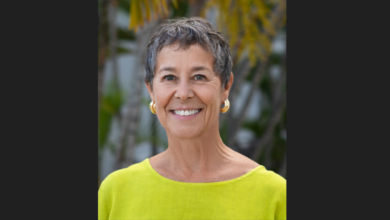


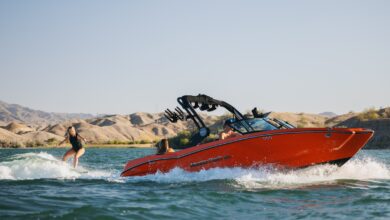
Congratulations to you all for making the boating industry more than just about boats but about how to help each other out in a difficult time and figure out how to save money lives in a safe way to make masks plus boats I’m working on becoming a member of the BoatUS family for an inland lake that’s close to where I live